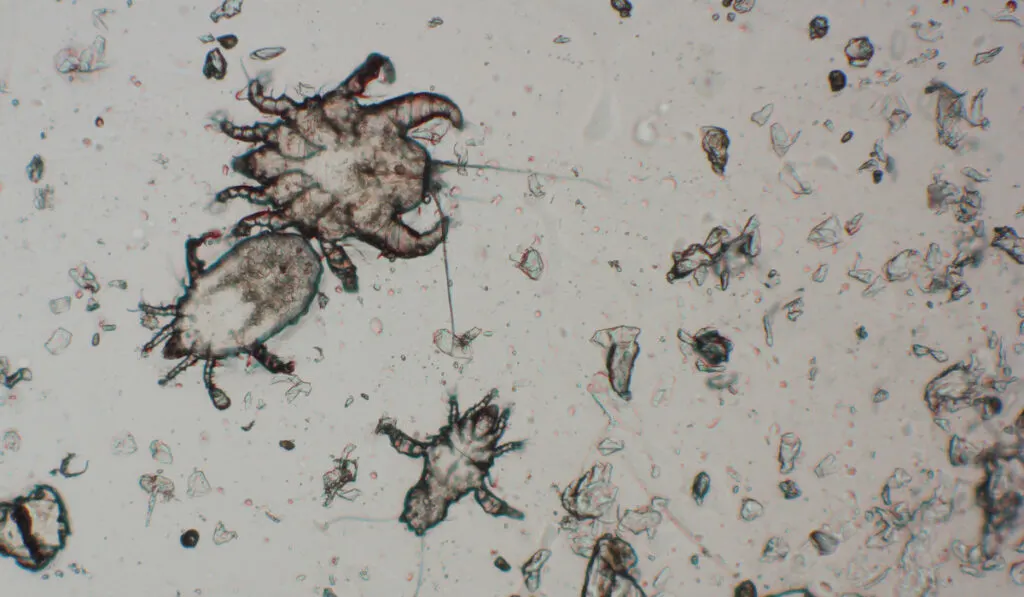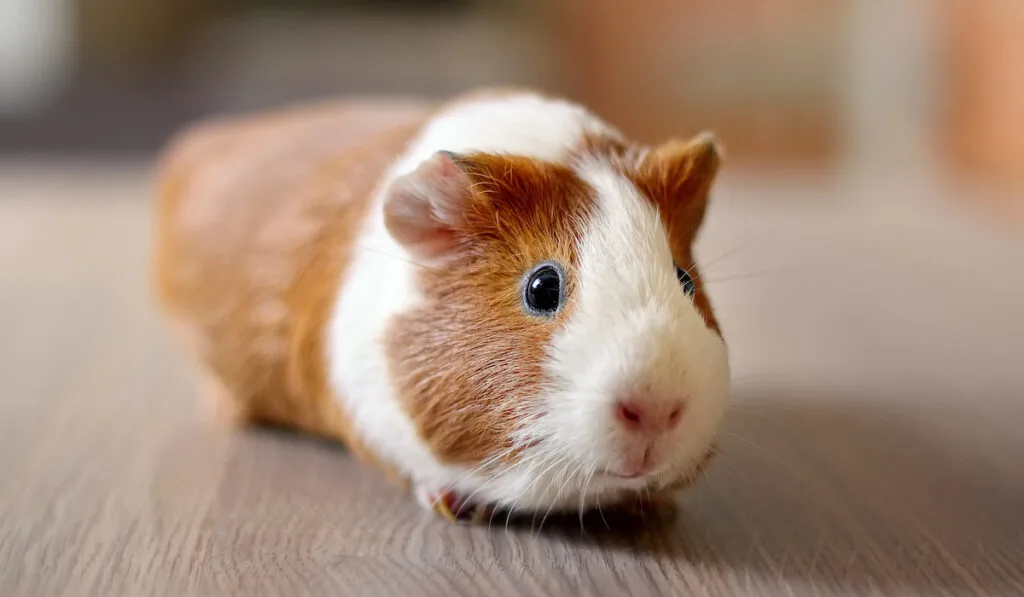You might wonder how guinea pigs bring their young into the world. Many animals give live birth to their babies while others lay eggs and hatch their young.
Do guinea pigs lay eggs?
Guinea pigs are mammals and give birth to live young. They do not lay eggs. They go through a full pregnancy period and go through labor to bring their offspring into the world.

Table of Contents
How to Tell if Your Guinea Pig is Pregnant
Wondering if your guinea pig is pregnant? There are a number of signs that you can look for including:
- Enlarged abdomen
- Showing a sign of little movement or feeling more distant
- Bodyweight increasing or even doubling
- Little to no appetite
- Showing weakness when walking, crawling, or being held
- Difficulty breathing
In some cases, they may become overwhelmed and their body weight may not be able to produce a baby, leaving them with extreme illness and potentially leading to death. This is possible with very young guinea pigs or having pre-existing illnesses or health conditions.
If you suspect that your guinea pig is pregnant, you will want to watch for signs that they are going into labor. This is often marked by them giving out a cry as either a very short or a long shriek.
Note that the birthing process is usually managed alone so that the guinea pig feels less stressed and can focus on the birth. When done, it is not uncommon for the guinea pig to eat the amniotic sack of their newborn.
What to Do if You See White Eggs on a Guinea Pig
These white eggs may be mites or flystrike. These are common among pets and can have differing effects.
Mites
Mites are parasites similar to the common flea or lice. These may cause itching in the guinea pig and overall excessive scratching. This may lead to the loss of hair either in patches or showing signs of shedding more than previous times.
Luckily, guinea pigs can be treated for mites. Much like human lice, a simple shampoo can cure this quite easily. You may also need to comb through their fur to remove the mites.
Be sure to choose a non-irritating shampoo. Some products can include harsh chemicals that cause skin irritation and even illness. Testing the product on a small area of skin will show you if it is safe for your guinea pig.

Flystrike
Flystrike is common on small animals including the guinea pig. These pests are usually metallic in color and enjoy landing on meat and rotting flesh. However, these flies are also attracted to small animals.
They tend to lay eggs which can appear white on your guinea pig’s fur. They are commonly found toward near the skin and can eat the skin when they hatch. While painful for your pet, this can also cause diseases and infections.
Flystrike occurs more with unclean animals. One way to prevent it is to clean them frequently. If flystrike strikes your guinea pig, you can use shampoo or medicines provide by your veterinarian to address the problem.
Remember that this information is not a substitute for medical advice. If you believe your guinea pig has an illness or is acting abnormally, connect with your veterinarian right away.
Gestation Length of Guinea Pigs
The gestation period is the time that a pregnancy lasts to carry offspring to full term. This is commonly 59-72 days for an adult guinea pig.
When going through this period of time, your guinea pig may become stressed or feel abdominal pain. They may also stop their normal behavior such as cuddling with you or eating less than usual.
Guinea pigs can give birth to 1-3 pups at a time. The average adult guinea pig has the ability to become pregnant and give birth about 5 times per year. Of course, this depends on the age.

Tips for Guinea Pig Births
Below are some extra tips to help navigate your guinea pig during their pregnancy.
- Feed them lots of dark green vegetables such as lettuce, kale, and broccoli
- Feed them grass or hay to increase their fiber intake and help with digestive issues or abdominal pain
- Give them space with frequent checks to make sure are not showing symptoms of extreme pain or potential illness
- Give them vitamins, mainly Vitamin C and Vitamin D, through foods including kiwi, oranges, or red peppers
- Be very gentle and cautious when petting them or attempting to handle them
Sources
- https://www.merckvetmanual.com/all-other-pets/guinea-pigs/breeding-and-reproduction-of-guinea-pigs
- https://lakeshorepethospital.com/wp-content/uploads/2018/07/Guinea_Pig_Pregnancy.pdf
- https://animals.mom.com/guinea-pig-losing-hair-small-white-bugs-cage-2027.html
- https://www.omlet.co.uk/guide/guinea_pigs/guinea_pig_illnesses/mite_and_lice_treatments
- https://www.stortvet.com/breeding-from-your-guinea-pig/
- https://kb.rspca.org.au/knowledge-base/i-think-my-guinea-pig-might-be-pregnant-what-should-i-do/
- https://www.marchofdimes.org/pregnancy/pets-and-other-animals-during-pregnancy.aspx
- https://www.guineapigmagazine.com/blog/fly-strike
- https://www.guineapigmagazine.com/blog/fly-strike
